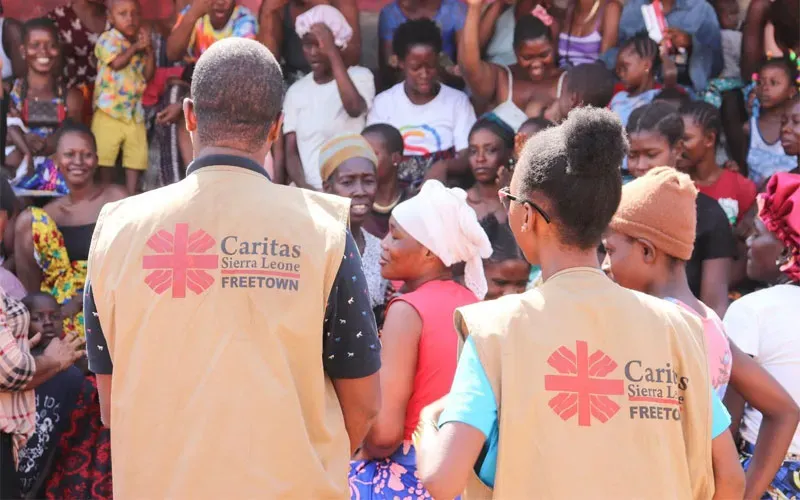He added, “As we come together to recognize their achievements and distribute start-up kits to support their future endeavours, we are witnessing the tangible impact of our collective efforts to empower women and girls in the community.”
The training was part of a comprehensive project that Caritas Freetown undertook to support victims of gender-based violence and prevent further abuse in targeted communities of the West African country.
Funded by Manos Unidas under the implementation of the development arm of the Catholic Archdiocese of Freetown, the program was designed “to prevent all forms of violence against women and girls, promote behavioural change on good hygiene practices in 20 Schools and 20 Communities between October 2022 and September 2023 in the Western Area Rural District.”
Fr. Konteh said that the theme of this year's celebration of the International Women’s Day (IWD), "Invest in Women, Accelerate Progress," resonates with the Caritas Freetown project targeting women who have undergone abuse.
“By focusing on strengthening behavioural change on gender-based prevention, promoting access to justice, and providing hygiene education for vulnerable women and girls, we have taken concrete steps towards creating a more inclusive and equitable society,” the member of Clergy of the Archdiocese of Freetown said.
He added, “We have successfully worked to prevent violence against women and girls and instil positive hygiene practices in schools and communities across the Western Area Rural District.”
Apart from the skills training, the Caritas Freetown project supported survivors of domestic violence through medical aid, police investigation, court hearing, referrals, psychosocial counselling, as well as financially.
At a larger scale, the Catholic Church charity entity in Sierra Leone held awareness raising and advocacy sessions especially in learning institutions.
Caritas Freetown established 20 school clubs and 20 community groups, Fr. Konteh said, and added that the groups had been crucial in carrying out advocacy campaigns on GBV prevention. “Their involvement in the project enhanced their participation and feeling of ownership of the project. This strategy has been key for the sustainability of the project,” he said.
Additionally, 25 school-going survivors of sexual penetration, and severe physical assault from poor homes in remote communities were successfully supported with essential educational learning material for their studies.





